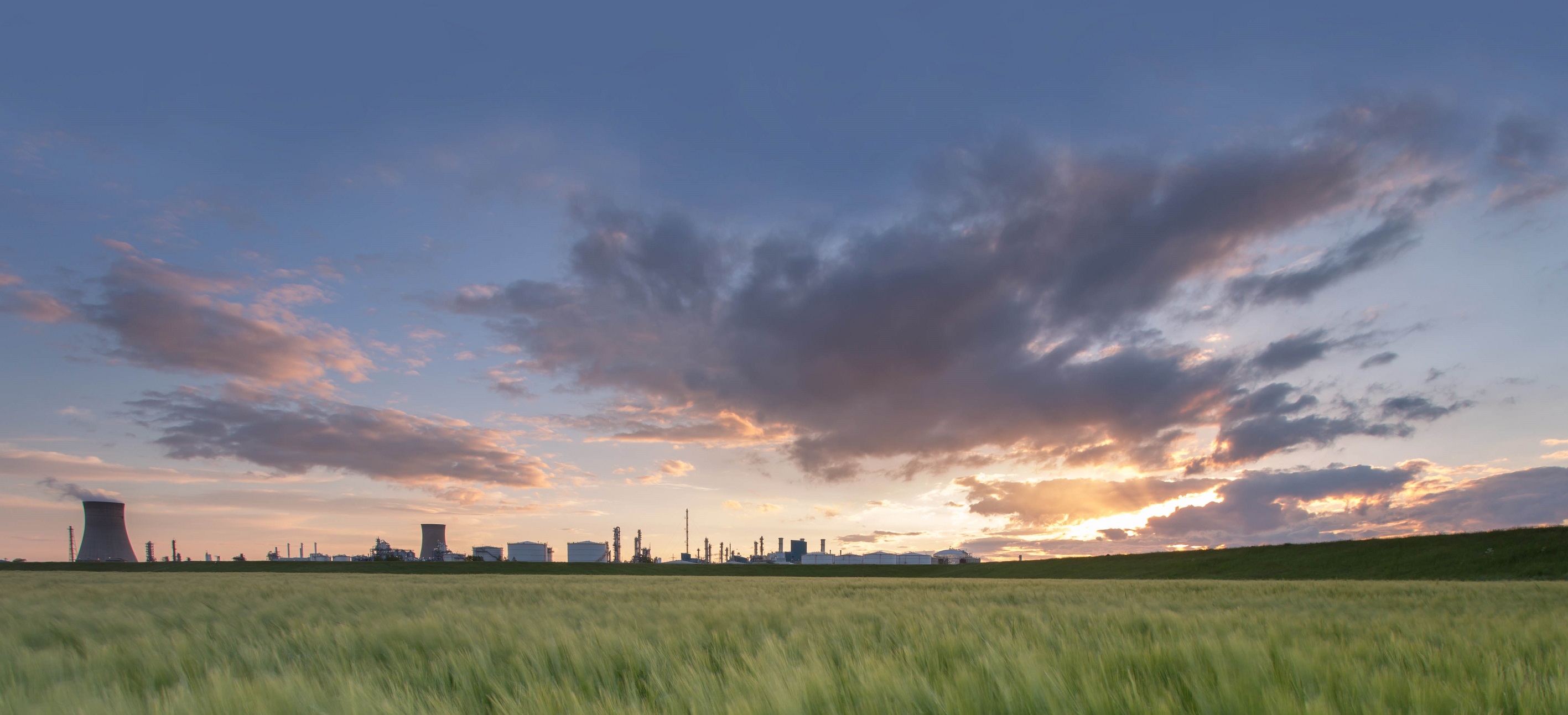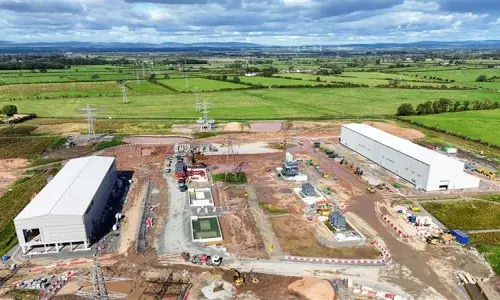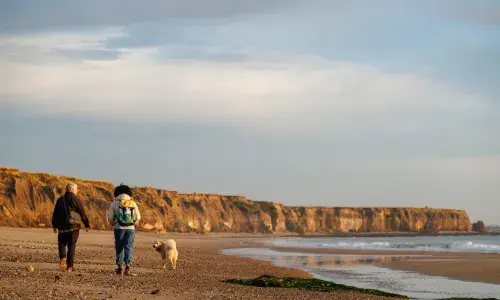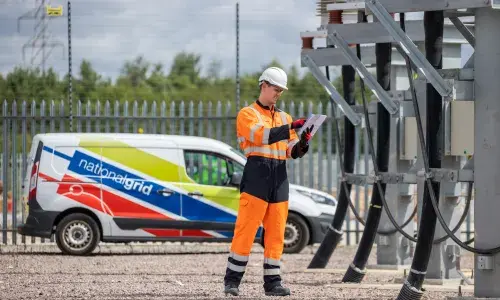
Leading companies agree to develop plan for the world’s first zero carbon cluster in the UK's Humber region
- Eleven companies form consortium to progress a plan for a decarbonised industrial cluster in the Humber.
Eleven leading energy and industrial companies have signed a formal agreement to support a joint plan to develop a decarbonised industrial cluster in the Humber. Their consortium’s plan, to transform the Humber region into the world’s first net zero carbon industrial cluster by 2040, has also secured an initial award from the UK’s Industrial Strategy Challenge Fund.
The companies involved include some of the largest businesses in the Humber region: Associated British Ports; Centrica Storage Ltd; Drax Group; Equinor; National Grid Ventures; Phillips 66 Ltd; px Group; SSE Thermal; Saltend Cogeneration Company Limited; VPI-Immingham LLP; and Uniper.
The plan has the potential to contribute to the future prosperity of the UK’s largest industrial hub, which contributes £18bn towards UK Gross Value Added (GVA), and to safeguard 55,000 jobs in manufacturing across the region.
UK Research and Innovation (UKRI) announced on 16 April that the Humber project had been successful in its application for Phase One funding via the Industrial Strategy Challenge Fund.
The companies’ proposals for the Humber include identifying anchor projects from across the region that can kick-start the decarbonisation of the Humber industrial region, with the potential to capture and store around 10% of UK carbon dioxide emissions per year by 2040. The plan is a coordinated approach to reduce carbon dioxide emissions by maturing options to deploy capture and storage of emissions (CCS), negative emissions (through bioenergy with CCS), fuel switching to low carbon hydrogen (produced from natural gas using CCS) and looking into future options of hydrogen through electrolysis.
Chair of the Humber Local Enterprise Partnership, Lord Haskins, said: “We are pleased to welcome this agreement and the commitment companies across the Humber are making to working towards a net-zero carbon economy. This collaborative effort is key to the region – currently the UK’s highest emitting industrial cluster – reducing its carbon output and creating more new economic opportunities through clean growth.”
Speaking on behalf of the consortium, Al Cook, Executive Vice President and UK Country Manager at Equinor, the company leading the bid, said: “We are delighted to be working with such a broad group of skilled and experienced partners on a plan that will bring huge benefits for the economy of the Humber and the environment. We believe CCS and hydrogen must play a significant role in decarbonising energy systems in the UK and globally, so we are pleased that the UK Government and UKRI have recognised the ambition and potential of these proposals.
"At such a difficult time, we hope this can represent some good news for UK industry, jobs, the environment and the economy. We and our partners are now focused on developing our plans further and working closely with key regional stakeholders such as the Humber Local Enterprise Partnership and CATCH UK."
Contact for media information only
Press Officer
Simmie Korotane
[email protected]
+44 (0)7971 343383
+44 (0)1926 653942
Notes for editors
Associated British Ports: the largest port company in the UK and owner of 21 ports, including some of the busiest and most efficient ports in Europe.
Centrica Storage Limited (CSL): owner and operator of the Rough gas field which used to store gas on behalf of a large number of customers. Today CSL is producing the indigenous gas and planning for decommissioning, including asset re-use.
Drax Group: owner of Europe’s biggest biomass power station and testing technologies to capture CO2 from its operations. Scaling the power station’s capture capability could result in up to 16 million tonnes per year of negative emissions in the UK.
Equinor: the UK’s largest supplier of natural gas and crude oil, and a co-owner of what will be the UK’s and the world’s largest offshore wind farm, Dogger Bank. Equinor has world-leading experience in CCS and is developing multiple hydrogen projects and concepts in the UK and Europe.
National Grid Ventures (NGV): operating within one of the largest privately-owned utility companies. NGV developed the White Rose CCS T&S system in Humberside, including appraisal of the Endurance CO2 store. including associated data.
px Group: an integrated infrastructure solutions company which owns and operates Saltend Chemicals Park and operates and maintains some of the UK’s largest industrial facilities.
Phillips 66 Limited: a subsidiary of Phillips 66, a diversified energy manufacturing and logistics company and owner of the UK Humber Refinery one of the most complex in Europe processing 221,000 barrels per day providing energy and improving lives for over 50 years.
Saltend Cogeneration Company Ltd: one of the largest, most efficient natural gas-fired electric power generating facilities in England. The power station provides electricity and steam for Saltend Chemicals Park.
SSE Thermal: owns and operates around 6,000MW of thermal generation capacity in the UK, including the Keadby 1 CCGT and Ferrybridge Multifuel plants in the Humber region. The company is currently constructing the 840MW Keadby 2 CCGT in North Lincolnshire, which is expected to become the cleanest and most-efficient gas-fired power station in Europe. SSE Thermal is part of the FTSE-listed SSE plc, one of the broadest-based energy companies in the UK.
Uniper is an international energy company with around 11,000 employees and operations in 40 countries. In the UK, Uniper operates a flexible generation portfolio of seven power stations, and a fast-cycle gas storage facility. A broad range of commercial activities are offered through the Engineering Services division, while the Uniper Engineering Academy delivers high quality technical training and government accredited apprenticeship programmes for the utility, manufacturing and heavy industry sectors.
VPI-Immingham: an energy and commodities company owning and operating VPI Immingham, a CHP power plant providing steam to refineries and power to the wider electricity network.
The ISCF Industrial Decarbonisation Challenge:
This is a 2-phase competition launched by Innovate UK, part of UKRI as part of the Industrial Strategy Challenge Fund. In Phase One, industrial clusters must develop their Deployment projects/ Roadmaps setting out their proposed approach to allow them to bid for Phase Two. More information can be found here.
Media queries: Please contact Eskil Eriksen, Equinor Media Relations, on +47 9588 2534.
Notes to Editors
National Grid is pivotal to the energy systems in the UK and the north eastern United States. We aim to serve customers well and efficiently, supporting the communities in which we operate and making possible the energy systems of the future.
National Grid in the UK
- We own and operate the electricity transmission network in England and Wales, with day-to-day responsibility for balancing supply and demand. We also operate, but do not own, the Scottish networks. Our networks comprise approximately 7,200 kilometres (4,474 miles) of overhead line, 1,500 kilometres (932 miles) of underground cable and 342 substations.
- We own and operate the gas National Transmission System in Great Britain, with day-to-day responsibility for balancing supply and demand. Our network comprises approximately 7,660 kilometres (4,760 miles) of high-pressure pipe and 618 above-ground installations.
- Other UK activities mainly relate to businesses operating in competitive markets outside of our core regulated businesses; including interconnectors, gas metering activities and a liquefied natural gas (LNG) importation terminal – all of which are now part of National Grid Ventures. National Grid Property is responsible for the management, clean-up and disposal of surplus sites in the UK. Most of these are former gas works.
National Grid undertakes no obligation to update any of the information contained in this release, which speaks only as at the date of this release, unless required by law or regulation.



